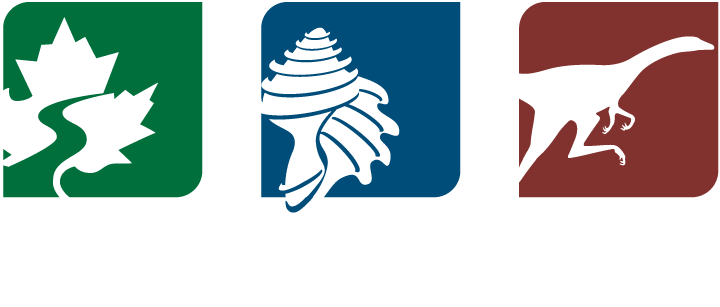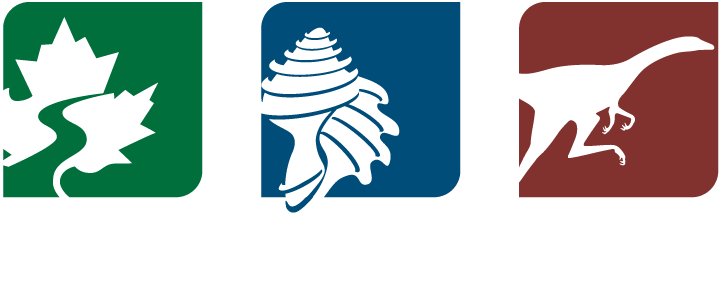PRI announces the theme for the 2019 Ithaca Darwin Days: “Living Fossils” The annual commemoration of the birthday and ideas of Charles Darwin includes a week of activities for all ages.
FOR IMMEDIATE RELEASE
Contact: Jim Harper, Manager of Marketing and Communications
Paleontological Research Institution
607-273-6623 x115
jrh2@cornell.edu
PRI announces the theme for the 2019 Ithaca Darwin Days: “Living Fossils”
The annual commemoration of the birthday and ideas of Charles Darwin includes a week of activities for all ages.
Ithaca, NY (January 14, 2019) – Come discover a world of Living Fossils as part of the Paleontological Research Institution’s and Cornell University’s 14th annual Ithaca Darwin Days--the commemoration of the 210th birthday of Charles Darwin and his enduring legacy. Explore how have some living things have survived seemly unchanged for millions of years and discover the fascinating stories behind these plants and animals that time forgot. During the week of February 9-16, 2019, there will be lectures, Family Day at the Museum of the Earth, movie, panel discussions, trivia night, and more, as part of the celebration.
Kicking off the week-long celebration is a screening of the original “Jurassic Park” at Cinemapolis, on Saturday, February 9th at 2 pm, With special guest appearance by renowned paleoartist John Gurche, who will describe some of his experiences as a technical advisor for the first Jurassic Park movie in 1993. Tickets: $9 ($8 for PRI members) and can be purchased ahead of time online at https://boxoffice.diamondticketing.com/cinemapolis/upcoming/73036/6686
On Monday, February 11th, at 6 pm, in Kaufman Auditorium, G64 Goldwin Smith Hall, on the Cornell University campus, there will be a keynote presentation by Dr. James Lamsdell entitled “Horseshoe Crabs: Living Fossils or Dynamic Survivors?” The presentation is free and open to the public. Horseshoe crabs are commonly referred to as living fossils, surviving unchanged for millions of years. However, the fossil record shows that in the past, these amazing creatures lived in lakes and rivers as well as coastlines and spread across all the continents including Antarctica. The talk will explore how horseshoe crabs have changed over their evolutionary history, and what the future may have in store for them as they deal with new, human-made challenges.
Dr. James Lamsdell is an Assistant Professor of Paleobiology in the Department of Geology and Geography at West Virginia University. Dr. Lamsdell’s research focuses on macroevolution and paleoecology through the lens of paleontology and paleobiology, particularly in aquatic arthropods such as marine chelicerates (relatives of spiders, mites, scorpions etc.). He uses phylogenetics to test the relationships of extinct organisms, and with these hypotheses of relationships he tests for patterns of selectivity in macroevolutionary events such as mass extinctions. He has published extensively on fossil horseshoe crabs and the extinct eurypterids, and has ongoing research projects focusing on the Late Devonian extinction.
Tuesday, February 12th, a panel of paleobotanists will discuss “Spores, Seeds, and Survival: Living Fossils and the World of Plants”, at 6:30 pm in the Tompkins County Public Library, 101 East Green St., Ithaca, NY. The scientists, Dr. Maria A. Gandolfo, Associate Professor in Paleobotany, Systematics and Plant Anatomy at Cornell University, Dr. William Crepet, Professor in Plant Biology at Cornell University, and Dr. Elizabeth Hermsen, Research Scientist at the Paleontological Research Institution, will discuss their research as it relates to plant evolution and "living fossils.” The presentation is free and open to the public.
On Wednesday, February 13th is Darwin’s Cabaret with Dr. Willy Bemis, at 7:30 pm in the Tompkins County Public Library, 101 East Green St., Ithaca, NY. Join Dr. Bemis, who is Professor of Ecology and Evolutionary Biology and Faculty Curator of the Ichthyology Collection at Cornell University, for a fascinating dive into the world of coelacanths. These amazing fish, closely related to land vertebrates, are perhaps one of the best-known examples of “living fossils.” Journey with fish-expert Dr. Bemis through the history and discovery of the coelacanth—learn how its evolutionary significance has helped us understand the origins of four-limbed vertebrates. In the tradition of Science Cabarets, all ages are welcome to attend this lively event and refreshments will be provided.
Test your knowledge of evolution, science history, and living fossils at Darwin’s Trivia Challenge on Friday, February 15th at 7:00 pm at The Rhine House in Ithaca. Prizes will be awarded to the winning teams. There is a maximum of six players per team—put your team together and come out for a fun and challenging evening.
Come see the new exhibit, “Survivors: Up Close with Living Fossils”, and learn about Charles Darwin and his work in advancing our knowledge of the natural world on Saturday, February 16th from 10 am - 2 pm during Darwin Family Day at Museum of the Earth, 1259 Trumansburg Rd, Ithaca, New York. Family-friendly activities include crafts, fossil table, a scavenger hunt, and face painting. The “Survivors” exhibit touch tank will be open so you can get up close and personal with horseshoe crabs and sea stars. Everything is included with Museum admission.
For more information and a full schedule of events, visit www.priweb.org/darwindays
Since 2000, Darwin Day has been an annual international commemoration of the birthday and ideas of Charles Darwin, (1809-1882), a British naturalist and the author of the seminal book “On the Origin of Species by Means of Natural Selection”. In 2006, PRI, in collaboration with Cornell University and Ithaca College, celebrated the first official Darwin Day in Ithaca, New York, with a five-day series of panel discussions, film screenings, speakers, and workshops, aimed at increasing awareness of Darwin’s theory and its relevance today in the Ithaca community and beyond.
Support for Darwin Days 2019 is provided in part by Cornell University.
About the Paleontological Research Institution
Founded in 1932, the Paleontological Research Institution (PRI) has outstanding programs in research, collections, publications, and public education. The Institution cares for a collection of over three million specimens (one of the 10 largest in the U.S.), and publishes Bulletins of American Paleontology, the oldest paleontological journal in the Western Hemisphere, begun in 1895. PRI is a national leader in the development of Earth science education resources for educators and the general public.
PRI’s Museum of the Earth was established in 2003 to provide the general public with a unique opportunity to explore the Earth’s past and understand each individual’s role in its present and future through a unique mix of natural history displays, interactive science features, and art exhibitions. The museum’s 8,000-square-foot permanent exhibition takes visitors on a journey through 4.5 billion years of history--from the Earth’s origin to the present day. Through hands-on, visual exhibitions and outreach, the Museum of the Earth encourages critical thinking about life on Earth in the past and today, and how our species is affecting the natural world. Visitors can touch and feel history through hands-on exploration of fossils and dinosaurs at Discovery Labs, view more than 650 specimens from the PRI’s world-class collections, including the skeletons of the Hyde Park Mastodon and Right Whale No. 2030, and enjoy the 500-foot art mural, Rock of Ages, Sands of Time.
Located on 120 acres of land overlooking Cayuga Lake, PRI’s Cayuga Nature Center cultivates an awareness, appreciation, and responsibility for the natural world through outdoor and environmental education. Visitors can view live animals, including many species native to the Finger Lakes region of New York, in outdoor and indoor exhibits. See how life has changed under the surface of Cayuga Lake over the past 300 years in the “Cayuga Lake: Past and Present” dual-aquaria exhibit. Learn more about the ecology of the Cayuga Basin through the educational exhibits in the Nature Center’s historic Lodge. Climb TreeTops, the Nature Center’s six-story tree house and get a bird’s-eye view of the forest canopy. Enjoy miles of trails along gorges and streams, surrounded by native habitat. A public education venue of PRI since 2013, the Nature Center is a premier educational center for teaching and learning about the impact of climate change on the fauna and flora of Tompkins County. The Nature Center also runs one of the area’s premier summer camps for pre-school and school-aged children that focuses on natural science and environmental education.
PRI and its two public venues for education, the Museum of the Earth and the Cayuga Nature Center, are separate from, but formally affiliated with Cornell University, and interact closely with numerous University departments in research, teaching, and public outreach. They are a proud member of the Discovery Trail.
###

